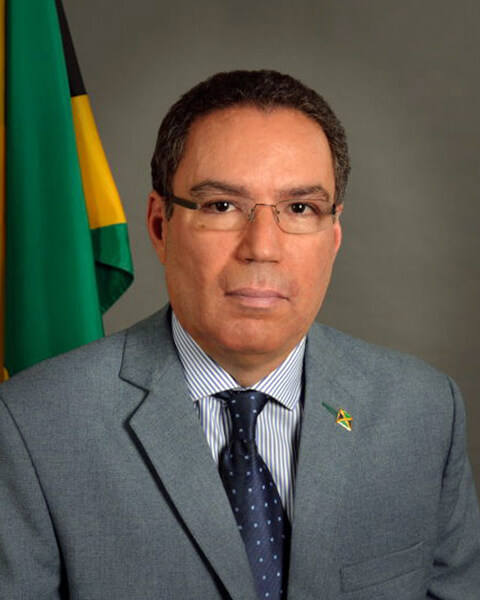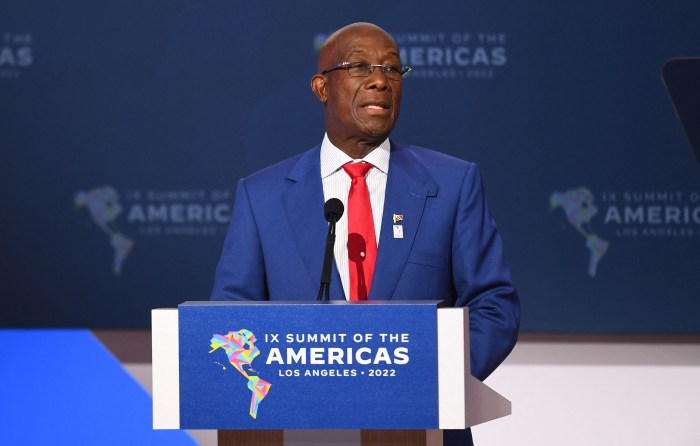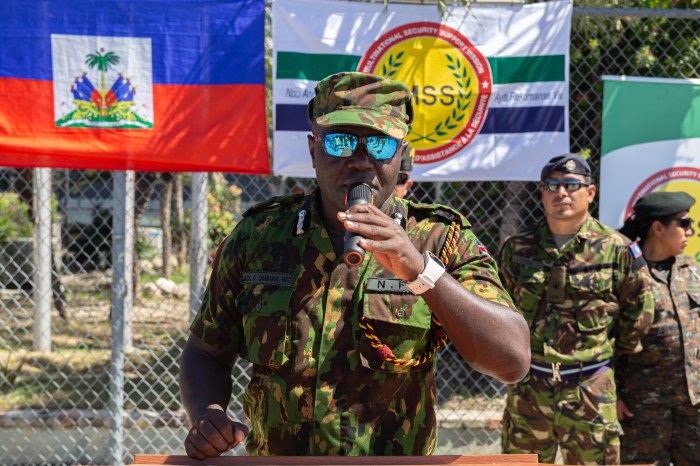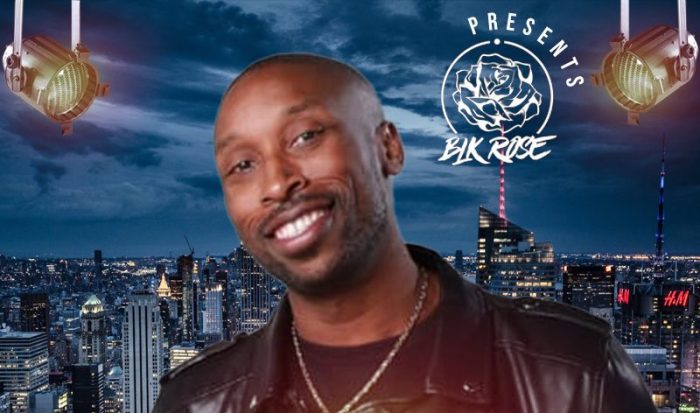Two years ago, the US government mysteriously yanked the American entry visas of Jamaican government minister Daryl Vaz, his wife and that of former opposition lawmaker, Phillip Paulwell and, as usual, gave no reason for doing so, routinely citing federal confidentiality laws.
The visa revocation led to widespread speculation as to the reasons for doing so as the officials did not budge over the period but developments in recent days have shed new light on why Vaz was forced to work and live without being able to travel for the US since 2019.
Just as mysteriously as his visa was taken away, the US mission in Kingston, the capital, contacted Vaz recently to indicate they would reinstate his entry permit. Vaz, minister of Science, Energy and Technology, was elated but there has been so much controversy surrounding the issue that the main opposition People’s National Party (PNP) has called on the Andrew Holness administration to both explain it to the Jamaican public and to terminate his services. There is, however, a howler in the reinstatement.
Detailed in special immigration codes in his new one-year visa is an embarrassing and humiliating special waiver which reads as “212 (Small D) (3) waiver of 212 (A) 92C) (1)” meaning that federal officials still have cause to believe that the applicant or visa holder has in the past been linked to the drug trade as an aider, abettor, conspirator and related activities according to the Jamaican Gleaner. Vaz has persistently and vehemently denied such links and many including PM Holness and former American Ambassador Donald Tapia are standing behind Vaz.
Vaz has not been locally known to be involved in the drug trade so the visa cancellation sparked national debate about whether the embassy and state were acting on credible information or had been the victim of inaccurate information fed to them. Former Jamaican Prime Minister Bruce Golding even thinks that Washington has been “weaponizing” visa issuance when it suits its national interests, albeit unfairly.
Doubts about the entire episode began to emerge in recent months when former American Ambassador to Jamaica, Donald Tapia made it clear that the US was wrong to pull Vaz’s visa as there was no evidence linking him to the drug trade or the local underworld. He even thinks that the waiver inserted in his passport is there through vindictiveness to cover up a major mistake at the embassy. Tapia, together with Holness, mounted a special, secret probe into Vaz’s background relating to the drug trade and underworld. Both came to the conclusion that the minister was clean. Ironically, Vaz was forced to give up his American citizenship more than a decade ago to comply with local electoral and parliamentary eligibility rules.
“After the agencies provided their findings to the prime minister, it was found that the allegations were not factual,” Tapia said noting, that the probe conducted by American officials “found that all reports were hearsay allegations with no substance or evidence.”
To add to a string of strange developments in recent days, Vaz has been named to lead a government delegation to a science conference in the US next month. The US government will fund the trip entirely. The rival Observer newspaper reported Wednesday that Vaz has also been surprisingly issued with an upgraded new five-year diplomatic visa apparently to give him comfort on the trip. Ambassador Tapia had written to nearly 50 senators complaining about Vaz’s case and urging them to act to right a wrong.
For their part, the opposition PNP says the waiver in the passport is a red flag and as a current lawmaker and “member of the cabinet, and the need for this waiver raises immediate concerns which must be addressed, as it indicates that the consular officer had reason to believe that Mr. Vaz is associated with drug trafficking,” it alleged.



























